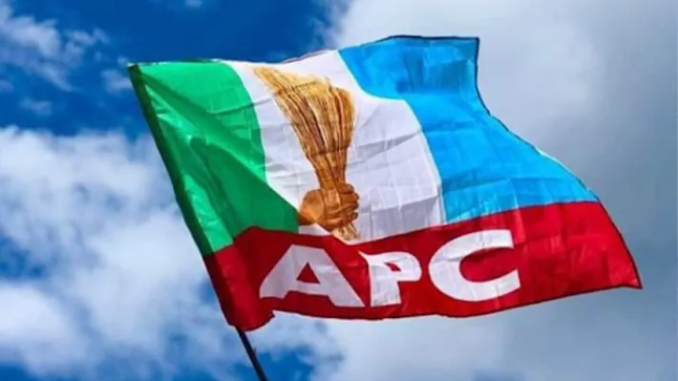
With the Edo State governorship election just days away, a major scandal is brewing within the Independent National Electoral Commission (INEC).
Senior INEC officials have reportedly come under immense pressure from top chieftains of the All Progressives Congress (APC) not to deploy the Bimodal Voter Accreditation System (BVAS), an essential tool designed to ensure credible voting during the election.
Sources within INEC have revealed that APC operatives, aware of their weakening political grip in the state, are determined to manipulate the electoral process by bypassing BVAS, which would severely compromise the integrity of the election.
BVAS is an electronic device specifically designed to read Permanent Voter Cards (PVCs) and authenticate voters using their fingerprints and facial recognition.
The technology has been lauded as a critical advancement in Nigerian elections, drastically reducing the chances of election fraud, including voter impersonation and ballot stuffing.
Its use was instrumental in the success of several recent elections, ensuring transparency and credibility.
However, APC’s concerns about its chances in Edo have reportedly led to aggressive efforts to convince INEC not to use the technology for the September 21, 2024 governorship election.
Top sources within INEC, who spoke under the condition of anonymity, disclosed that APC leaders fear a humiliating defeat if BVAS is deployed.
With the APC gubernatorial candidate, Senator Monday Okpebholo, struggling to gain traction among voters and facing internal rifts within the party, APC leaders are concerned that a free and fair election would almost certainly favour the Peoples Democratic Party (PDP) candidate, Asue Ighodalo.
“They know if BVAS is used, they will lose this election. The APC chieftains are aware that a transparent election will expose their vulnerabilities and their candidate’s unpopularity,” one senior INEC official said.
“That is why they are putting so much pressure on us,” he added.
In a damning revelation, several INEC officials disclosed that APC operatives have earmarked a staggering N500 million to be distributed among top INEC officers as a bribe to ensure the BVAS system is not used on election day.
Some officials, uncomfortable with the plan, have begun speaking out anonymously to alert the public.
One source said: “The pressure is unbearable. They have set aside N500 million to share among us, expecting that we will look the other way and not use the BVAS system.
“We have witnessed the backlash from past elections, where any attempt to bypass the BVAS system was easily detected, especially by the PDP and Labour Party lawyers during tribunal proceedings. Some of us are not comfortable being part of such a scheme.”
The INEC insiders explained that one of their biggest concerns is the legal ramifications that could follow.
With Nigeria’s electoral laws and the provisions of the 2022 Electoral Act mandating the use of BVAS, officials fear that non-compliance could open the door to a flood of petitions in the election tribunal.
“From past experience, we know the PDP and Labour Party are always ready with their legal teams. The lawyers are sharp, and they would easily detect the irregularities if BVAS is not used. It could end up being a major issue for APC in the election tribunal,” an official stated.
According to sources, the pressure campaign has led to increasing tension within INEC, with some officials standing firm in their commitment to upholding the law and using BVAS as mandated, while others are tempted by the large sums of money being offered.
The division is creating an internal crisis as INEC navigates the delicate balance between political pressure and their duty to ensure a credible election.
“Some of us have decided to speak out because we cannot continue to keep quiet. This is a serious situation, and the credibility of the election is at stake.
“We know the consequences of not using BVAS. It will damage our integrity and the democratic process,” another INEC official said.
This revelation comes when APC’s chances of winning the Edo governorship election are dwindling due to internal party strife, and the unpopularity of their candidate.
